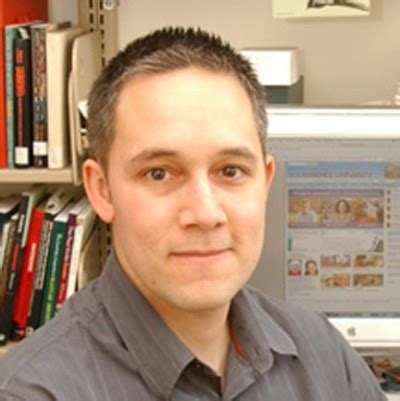A Quote by Muhammad Yunus
I believe that we can create a poverty-free world because poverty is not created by poor people. It has been created and sustained by the economic and social systems that we have designed for ourselves; the institutions and concepts that make up that system; the policies that we pursue.
Related Quotes
We create institutions and policies on the basis of the way we make assumptions about us and others. We accept the fact that we will always have poor people around us. So we have had poor people around us. If we had believed that poverty is unacceptable to us, and that it should not belong to a civilized society, we would have created appropriate institutions and policies to create a poverty-free world.
The economic distress of America's inner cities may be the most pressing issue facing the nation. The lack of businesses and jobs in disadvantaged urban areas fuels not only a crushing cycle of poverty but also crippling social problems such as drug abuse and crime… A sustainable economic base can be created in the inner city, but only as it has been created elsewhere: through private, for-profit initiatives and investment based on economic self-interest and genuine competitive advantage.
Inevitably, people tell me that poor folks are lazy or unintelligent, that they are somehow deserving of their poverty. However, if you begin to look at the sociological literature on poverty, a more complex picture emerges. Poverty and unemployment are part and parcel of our economic order. Without them, capitalism would cease to function effectively, and in order to continue to function, the system itself must produce poverty and an army of underemployed or unemployed people.
Unemployment in the sense of distress is widely disappearing. . . . We in America today are nearer to the final triumph over poverty than ever before in the history of any land. The poor-house is vanishing from among us. We have not yet reached the goal, but given a change to go forward with the policies of the last eight years, and we shall soon with he help of God be in sight of the day when poverty will be banished from this nation. There is no guarantee against poverty equal to a job for every man. That is the primary purpose of the economic policies we advocate
We already have the material means to eradicate deep poverty and thereby eradicate hunger. We have the material means to begin the tremendous clean up of the environmental messes we’ve created. We have, I believe, the psychological, emotional and spiritual means to create a world without war. We have the material means to create a world in which unnecessary human suffering has been drastically diminished. My vision for the future is that we do those things. And I think we will.
There is an alternative to terror. It is called, in the political order, democracy. In the economic order, it is called the dynamic enterprise economy. (...) It empowers poor people from the bottom up. (...) A dynamic economic sector is the poor's best hope of escaping the prison of poverty. It is the only system so far known to human beings to take poor people and make them, quite soon, middle class, and some of them even (horrors!) rich.
I strongly believe that we can create a poverty-free world, if we want to.... In that kind of world, [the] only place you can see poverty is in the museum. When school children will be on a tour of the poverty museum, they will be horrified to see the misery and indignity of human beings. They will blame their forefathers for tolerating this inhuman condition to continue in a massive way.
Political systems must love poverty-they produce so much of it. Poor people make easier targets for a demagogue. No Mao or even Jiang Zemin is likely to arise on the New York Stock Exchange floor. And politicians in democracies benefit from destitution, too. The US has had a broad range of poverty programs for 30 years. Those programs have failed. Millions of people are still poor. And those people vote for politicians who favor keeping the poverty programs in place. There's a conspiracy theory in there somewhere.
The poverty we see in America is now too widespread, and too complex, for easy fixes. But I do think we can reimagine many of our institutions and can create new ones in ways that would be effective. We could, for example, create social insurance systems, similar to social security, such as that we went through in 2008-9. We could create a financial transaction tax, oil profit taxes and a fairer estate tax system, and we could plow much of the revenue raised from these into job training programs, into better education infrastructure, into an expanded Earned Income Tax Credit.
Chile has done a lot to rid itself of poverty, especially extreme poverty, since the return to democracy. But we still have a ways to go toward greater equity. This country does not have a neoliberal economic model anymore. We have put in place a lot of policies that will ensure that economic growth goes hand in hand with social justice.
The American system demands success, and in order to succeed we must first believe that we can. Yet our society, with its intolerance of failure and poverty, traps millions of people in positions where any kind of success seems impossible to contemplate, and in which failure itself is a kind of passive rebellion against their own misery and the social system which created it in the first place. To succeed it is necessary to accept the world as it is and rise above it.































